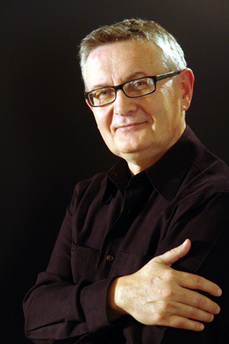
I could go on at some length about all that I think is wrong with new music nowadays. Suffice it to say that I have very little patience for high modernist composers still fighting the battles of the mid-20th century. Similarly, I don’t have much interest in backward-looking composers whose scores are little more than unimaginative exercises in musical nostalgia for pre-modernist eras.
What I do like is composers who find fresh new ways to work with musical materials and ideas authentically embedded in our culture. Such composers are, unfortunately, few and far between – but they do exist. (And I can’t help noticing that they don’t generally come from the European countries that historically formed the “core” of the classical music world: France, Germany and Italy.)
I’ve decided to begin this series of posts with the Canadian composer Marjan Mozetich. He started out as a modernist, but apparently had a vision on the road to Damascus. (For more biographical information about him, see here.)
I’ve selected his Procession, from 1979, scored for a “Beethovenian” septet: violin, viola, cello, bass, clarinet, bassoon and horn. I like its clear structure; its logically consistent use of a tonal vocabulary that Mozetich puts his personal stamp on; and the artful ways in which he interrupts and then restores the piece’s motoric rhythm.
It is performed here by the (sadly defunct) Amadeus Ensemble, from Toronto.
© Colin Eatock 2012
 RSS Feed
RSS Feed

